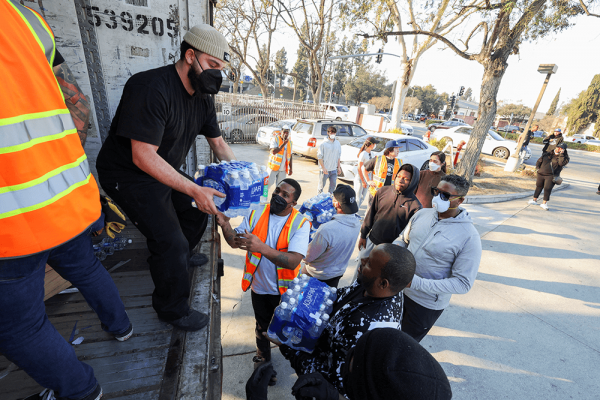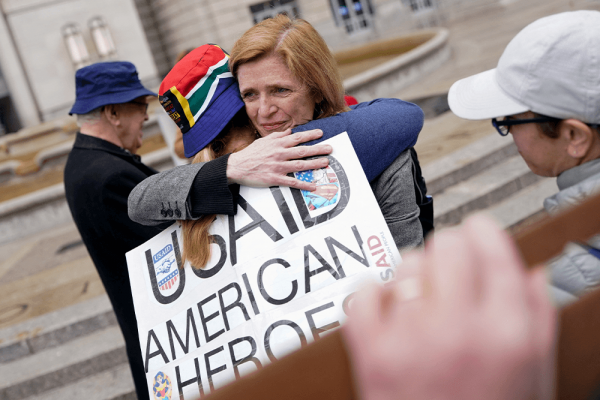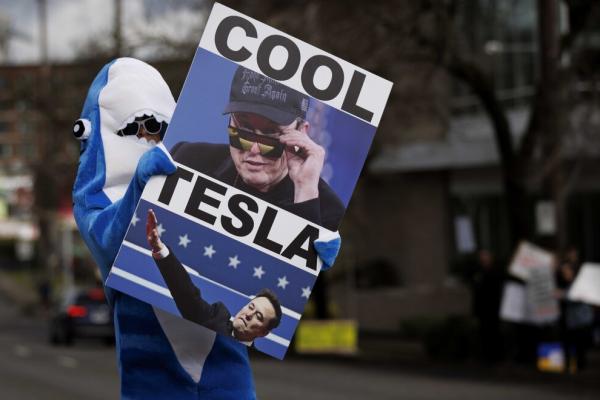Russia’s war in Ukraine has a religious dimension that must be understood: For the first time in decades, two predominantly Orthodox Christian countries are fighting one another. John Paul II said, “War is always a defeat for humanity.” As Russian soldiers are engaging Ukrainians in mortal combat, in many cases Orthodox Christians are killing Orthodox Christians. This war is a defeat for Christianity.
There’s a millennium of history behind this. Around 980, princes in what is today Ukraine were converted to Christianity by Orthodox Christians from Constantinople. The area around Kyiv became the heart of Orthodoxy in the region for three centuries, but then moved to Moscow. Orthodox churches in Ukraine were under the “sphere of ecclesial influence” of the Moscow Patriarchate, the center of the Russian Orthodox Church, until Russia invaded Crimea 2014. That escalated a split in the Orthodox Church in Ukraine — an unintended consequence Vladimir Putin didn’t imagine — and eventually a large group of Orthodox churches formed the Orthodox Church of Ukraine, independent from Moscow’s influence. But others remained in the Ukrainian Orthodox Church, with its ties to Moscow.
That history is important because of how Putin envisions Russia’s identity and global role. He’s committed to see the glories and geography of “Mother Russia” restored. Religiously, he claims this is preserving “Christian civilization” against the secular decadence of the West. And for that, his transactional alliance with the Russian Orthodox Church is essential. Like the czars, he wants to see Moscow as the center of political and military power over an empire that is sanctified by the blessing of the Russian Orthodox Church. And he wants an Orthodox Church he can control to reign in Ukraine.
In my ecumenical experience I have often listened to colleagues from the Russian Orthodox Church, as it emerged after the fall of the Soviet Union, extol their nationalistic righteousness and dismiss the decadence of Western societies and their churches, corrupted by collusion with secular culture. To be honest, the versions of Christianity championed by those colleagues often bears a strong resemblance to the white, masculine, militarized versions of evangelical faith described with such insightful analysis by Kristin Kobes Du Mez in her best-selling Jesus and John Wayne. So, it makes sense that Steve Bannon and voices of religious white nationalism look to Putin and other autocratic “Christian” leaders with such admiration.
All this underscores the grave dangers of wedding the church to nationalistic power and perceived righteousness: The possibilities of faithful prophetic witness are repressed and eliminated. Nationalism becomes idolatry. Belonging to a global body of Christ that transcends national boundaries is destroyed. The possibility of the church acting within situations of conflict and war as a channel of peacemaking vanishes. And at times, the church even ends up blessing weapons of destruction.
The Orthodox Church is severely divided between the Ecumenical Patriarch still in Constantinople (Istanbul), the symbolic figure of Orthodox unity, and the Russian Orthodox Church in Moscow. That’s a centuries-old tension, now deeply accentuated by today’s war. Among all this war’s casualties will be a deeper rendering of the Orthodox world. One can pray that the rival Orthodox churches in Ukraine can build bridges of cooperation through solidarity with the suffering of their common land.
And what is the shape of a wider global Christian witness in the face of this war? The danger, I think, is to immediately move toward invoking the “just war” theory. The Russian side, led by Putin, is so obviously the aggressor, determined to take over Ukraine by brute military force. Even measured diplomats are calling Putin “evil.” All that has justification. But historically, most conflicts ethicists try to label as “just wars,” when begun, as the inexorable dynamics of warfare take over, eventually become just a war.
For the follower of Jesus, war can never be the answer. But what are the alternatives? Can nonviolent resistance from people of faith around the globe find any expression? In fact, economic and political sanctions are a start. Of course, it’s clear that the sanctions imposed by countries against Putin’s Russia could not prevent him from his aggression. But they can impose a severe cost that will grow over time. While they are presently discussed as a tool in the arsenal of countries not becoming directly engaged militarily, it’s worth putting them within the moral framework of nonviolent resistance.
The irony is that in a globalized, economically integrated world, which breeds its own injustices, economic sanctions can become a viable and powerful tool to respond to brute aggression that breaches international law. We should remember that the apartheid regime in South Africa was finally broken when economic boycotts and disinvestment became a part of the resistance to evil.
On Ash Wednesday, global Christian organizations of Lutherans, Methodists, Mennonites, Reformed, and others will have an online prayer vigil for peace, joining the appeal of Pope Francis for prayer and fasting in spiritual and practical solidarity. The Sant’Egidio Community in Rome, known for its global commitment to peace and nonviolence, proposed an immediate ceasefire and called for Kyiv to be declared an “Open City,” or a city that unoccupied by military forces and prohibited by international law from being bombed.
The global Christian community should support and participate in all those forms of nonviolent resistance to Putin’s aggression and to the temptation from all sides to see violence as an answer rather than an evil. Further, the Christian community should stand against every attempt to use religious faith as a transactional tool to support the self-righteous nationalism of any regime, autocratic or democratic.
Finally, we should remain faithful in proclaiming that wars never win, in the end, and that Christ’s resurrection demonstrates how violence is all, ultimately, undone by the power of God’s love.
Got something to say about what you're reading? We value your feedback!







